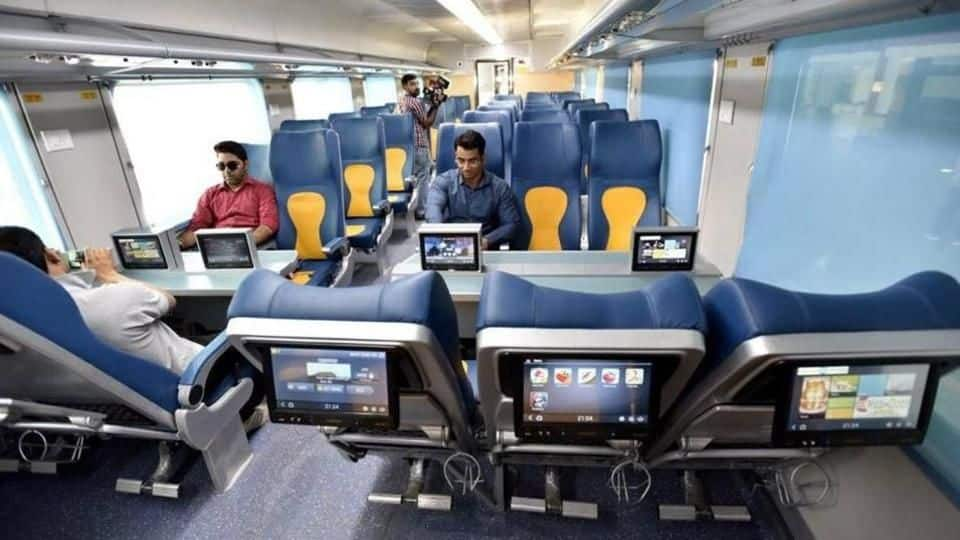
Railways may introduce "dynamic fares" for luxury Mumbai-Goa Tejas Express
What's the story
India's first "ultra-luxury" train -the Mumbai-Goa Tejas Express- had become a hit with travelers after its launch in May'17. However, the train's seat occupancy reportedly fell below 40%; one of the reasons could be the ticket price that is much higher than other trains on the route. To attract commuters, Indian Railways is now planning to introduce dynamic pricing for Tejas Express. Here's more.
Dynamic Pricing
Dynamic pricing: Ticket price increased based on demand
Tejas Express that connects Mumbai's Chhatrapati Shivaji Maharaj Terminus (CSMT) and Goa's Karmali station initially garnered huge popularity, but now its seat occupancy rates are on the decline. To improve occupancy, the Railway officials are mulling a dynamic fare structure. In dynamic pricing, the fare varies according to the growing demand: the ticket price changes depending on the level of demand in real-time.
Quote
Passengers booking early will get cheaper tickets: Railway official
"With dynamic fare, passengers booking tickets early will get tickets at a lesser cost...prices will go on increasing with the booking of a certain percentage of tickets," said an official. Meanwhile, Konkan Railway Chairman-MD, Sanjay Gupta, confirmed the Railway Board is considering dynamic pricing.
About
Automatic doors, LED TVs, free Wi-Fi and more
The "ultra-luxury" Tejas Express has offers several amenities like LED screens for onboard entertainment, tea/coffee vending machines, celebrity chef menu, snack-tables, magazines, bio-toilets, etc. The fully air-conditioned train also has features like automatic doors, spacious reclining chairs, panoramic windows, CCTV cameras for safety, fire and smoke detection and suppression system, etc. Passengers can also enjoy free Wi-Fi on the train throughout the journey.
Information
What about the fare?
The fare for a chair-car in Tejas Express seat is Rs. 1,560 while an executive-car ticket costs Rs. 3,025 (including meals). The chair-car fare itself is twice that of other trains on this route. This could be the primary reason behind its declining occupancy.
Halts
Demand to increase the number of Tejas's halts
Sanjay Gupta said apart from dynamic pricing, a proposal for increasing Tejas Express's number of halts is also being considered. It currently stops at Dadar, Thane, Panvel, Ratnagiri, and Kudal stations. Gupta added the train will not stop at Madgao due to operational issues. Another official said people are also demanding to halt the train at Sawantwadi and some other major stations, too.